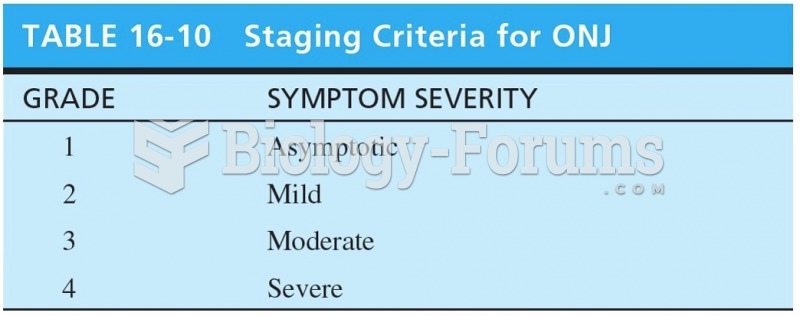|
|
|
Immunoglobulin injections may give short-term protection against, or reduce severity of certain diseases. They help people who have an inherited problem making their own antibodies, or those who are having certain types of cancer treatments.
After 5 years of being diagnosed with rheumatoid arthritis, one every three patients will no longer be able to work.
If you could remove all of your skin, it would weigh up to 5 pounds.
To maintain good kidney function, you should drink at least 3 quarts of water daily. Water dilutes urine and helps prevent concentrations of salts and minerals that can lead to kidney stone formation. Chronic dehydration is a major contributor to the development of kidney stones.
The calories found in one piece of cherry cheesecake could light a 60-watt light bulb for 1.5 hours.







